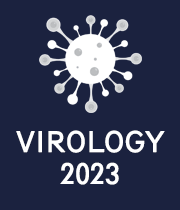Viral Disease Outbreaks
Since the dawn of time, humanity has been on a never-ending effort to eliminate the menace of infectious diseases. The globe has experienced the rise and re-emergence of viral outbreaks over the last 40 years, and this is no exception. Infectious illness outbreaks have a direct impact on human health, potentially jeopardising long-term development. By the end of the twentieth century, an estimated 34.3 million people around the world were infected with HIV/AIDS. Millions of children were orphaned, social life was disturbed, and civic order and economic progress were all harmed as a result of the epidemic. As the new decade begins, the world is trying to contain another global pandemic virus known as SARS-CoV-2, which causes Coronavirus Disease 2019 (COVID-19). It is one of the most serious public health crises in human history. Supportive therapy techniques and virus-containment measures are currently the most effective weapons in the battle against COVID-19.
- Emerging Viral Outbreaks
- Future Perspective
- Re-emerging Viral Outbreaks
- Public Health
- Surveillance and Preparedness

